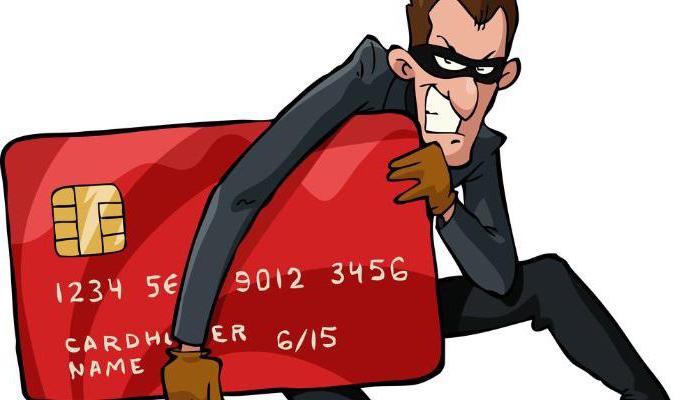The ability to get easy money has always attracted scammers. And now this problem in society remains one of the most acute. In the field of banking services, lending is in popularity almost in the first place. Now it is not difficult to get borrowed money, especially since competition forces banks to create the most convenient and loyal conditions for loans. As practice shows, credit fraud is associated with the lack of due diligence of not only the identity of the borrower, but also its solvency. The reason, for example, lies in the short waiting period for a response from the bank - this is done to attract more customers.

Introduction and Application Issues of Article 159.1
Until 2012, criminal law brought all types of fraud under the general rule - Art. 159. In December 2012, the Criminal Code was amended to better combat crime. The specified general norm was supplemented by six more. One of them is Art. 159.1 (credit fraud).
As a result of the new law, competition arose between the general and special norms. The conflict should be resolved by applying the well-known rule enshrined in the third part of Article 17 of the Criminal Code. It establishes that in cases where the crime is provided for immediately by two norms, general and special, the totality is absent, and liability (criminal) arises under the second, narrower article applicable to this area.
However, this rule is not in force to unequivocally resolve the problems that arise in practice - this is due to the peculiar design of Article 159.1.
What is meant by credit fraud?
Fraud is defined by the legislator, firstly, as the theft of another's property, and secondly, as the acquisition of rights to it through deception or abuse of trust. In the situation with the commented article, we are dealing with its qualified appearance. The commission of a crime in this case is possible only in a special group of economic relations - credit.
The basis of the loan is permission to use one person's capital of another, drawn up by agreement. Credit relations can now have the most diverse form. The most common commercial, banking, mortgage, consumer loans, car loans.
Simple composition

Part one of the analyzed norm contains information that credit fraud is expressed in the theft of funds by submitting to the bank, and in general to any other creditor, knowingly false and / or false information. The following alternative penalties are provided for the commission of this crime:
- a fine, the upper limit of the amount of which is 120 thousand rubles, or it is calculated in the equivalent of the guilty income for a period of up to 1 year;
- up to 2 years of freedom restriction;
- up to 360 hours of compulsory work;
- up to 1 year of corrective labor;
- up to 2 years of forced labor;
- up to 4 months of arrest.
Qualified staff
With a qualified composition of Art. 159.1 of the Criminal Code of the Russian Federation fraud in the field of lending is committed by a group of persons and is mandatory by prior arrangement (conspiracy). In this case, one of the following punishments may be imposed on the perpetrators:
- a fine of up to 300 thousand rubles. or in the equivalent of income (including salary) of the convicted person for a period of up to 2 years;
- up to 480 hours of compulsory work;
- up to 2 years of corrective labor;
- up to 5 years of forced labor with weight (restriction of liberty for a period of up to a year) or without it;
- up to 4 years of imprisonment of a convicted liberty with a burden in the form of its restriction for a period of up to a year or without it.
Highly qualified staff

The third and fourth parts of Article 159.1 (credit fraud) reflects signs of a highly qualified staff.
Firstly, this is the commission of the acts specified in parts 1 and 2 of the considered norm, using official position or in the amount assessed as large. In this case, one of the alternative types of punishment is assigned:
- a fine from 100 to 500 thousand rubles. or in proportion to the convicted person’s income (including salary) for the period from 1 year to 3 years;
- up to 5 years of forced labor with restriction (or without it) of freedom up to 2 years;
- up to 6 years of imprisonment with monetary burden of punishment (up to 80 thousand rubles, or in proportion to the convicted person’s income (including salary) for a period of up to 6 months), or with additional sanction in the form of restriction of freedom for up to 1 , 5 years or without it.
Secondly, this is the commission of fraud in the field of lending by an organized group or in the amount assessed as especially large. In this case, the sanction implies deprivation of liberty (up to ten years) with burdening in the form of its restriction or fine or without such. The maximum amount of a monetary penalty is 1 million rubles. or in the amount of salary, as well as any other income for a period of up to 3 years. The term of restriction of freedom may be assigned up to 2 years.
In the footnote to the analyzed article, it is indicated that hereinafter, especially large and large size means the amount exceeding 6 and 1.5 million rubles, respectively.
Characterization of the subject, object and objective side of the crime

According to the comments of the competent authorities, the clan and species objects of the criminal offense completely coincide. They are social relations that have developed in the field of lending.
The subject of fraud is property belonging to other people or rights to it. If it is committed in the field of lending, we are talking only about property.
The form of the objective side of fraud in the field of lending (Criminal Code, Article 159.1) the legislator strictly stipulated - this is the theft committed by the borrower. Method - providing the bank, as a creditor, with false information or that is obviously known to the offender. What exactly does the legislator mean by these concepts will be discussed further.
The compositions of criminal acts provided for in Article 159.1 are material. They are recognized as completed from the moment the money was transferred or transferred to a credit card based on information about the financial condition of the borrower that is false or unreliable.
False information and false: what is the difference?

Turning to the explanatory dictionary, we can find out that the word "false" is interpreted as incorrect, erroneous, containing a lie, deceiving and imaginary.
Inaccurate information not only in the case of credit fraud, but in general - this is information that is not true. It includes statements about events or facts that did not occur in reality at that moment, to which information disputed by the parties relates. Analyzing these concepts, we can formulate a conclusion.
False information, unlike unreliable truthful information, never contains. In the second case, initially the information may not be false, imaginary. However, under certain conditions known to the borrower, they lead to an erroneous idea of his solvency with the lender. For example, a person brings this statement of income to the bank and other requested documents, but at the same time he deliberately keeps silent about existing material obligations under a pledge or hiring agreement, etc.
Description of the subjective side, subject
The subjective side of credit fraud (Criminal Code of the Russian Federation, article 159.1) is a specific direct intention. Evidence of its availability can:
- lack of real financial ability to pay the loan;
- the use of false guarantee letters, fictitious documents;
- concealment of information about the presence of mortgaged property and debts.
If fraud is committed with an official document that relieves the borrower of his duties or grants him any rights forged by the borrower himself, then this refers to the aggregate crimes provided for by the analyzed norm and Article 327 of the Criminal Code.
Subject of crime: a person older than 16 years of age, capable.
Delimitation of article 159.1 (credit fraud) from illegal obtaining of a loan (article 176)

On the subjective side, both criminal acts are intentional. However, with fraud by the criminal at the time the creditor was misled, intent is already present. It is aimed at selfish and gratuitous seizure of other people's property. In the second case, the goal is to obtain a loan. However, the offender expects to return him in the future, albeit untimely.
In practice, the differentiation of compositions on the subjective side can be made if there are or are no certain payments on the part of the borrower. Although many lawyers pay a loan in small or scanty amounts, which clearly do not correspond to the amount of mandatory monthly payments, it is perceived as an attempt by the borrower to avoid liability under Article 159.1 of the Criminal Code.
Case studies play an important role in the analysis of any criminal law, including 159.1 (credit fraud). Comments contribute to the correct understanding of a term, phrase or sentence. They serve as a kind of guidance, and the consideration of real sentences is an opportunity to understand how the courts put all this knowledge into practice.
An example from practice under Part 2 of Art. 159.1
The court found that at some point in time the guilty person had a criminal intent to commit fraud in the field of lending, namely, embezzlement of money by providing knowingly false and false information to the bank. To draw up a product on credit and subsequently dispose of it at its discretion, the perpetrator began to look for persons who could contribute to this. Such a man was found, but his identity was not established by the investigation.
The guilty person, realizing the illegality of his actions, entered into a criminal conspiracy with an unidentified person. Roles were distributed as follows. An unidentified person is looking for goods for processing on credit, accompanies the guilty person to the place, submits deliberately false and false information about his financial condition for transfer to the bank. The defendant, in turn, draws up the goods on credit. Then he transfers it to an unidentified person and receives a fee for this; he does not repay the loan in the future.
The bank suffered damage in the amount of 100 thousand rubles. The accused was sentenced to one year in prison without restriction. The punishment was deemed conditional with a trial period of 1 year.
Less commonly encountered is a highly qualified type of credit fraud (art. 159.1). Practice shows that petty theft is common among socially disadvantaged people and is not committed singly, but together with other individuals.
Case study of part 4 of article 159.1 of the Criminal Code

The guilty person, being in the bank’s office, intentionally, intending to steal money, provided the loan manager with a fake copy of the work book. It contained a record of his employment as a director of a public company. He also provided knowingly false income statements.On the basis of the documents submitted, the perpetrator was given a loan, which he received in the continuation of the criminal intent at the bank’s office and then, not intending to fulfill the obligations to repay it, disposed of the money at his discretion. The Bank suffered damage in the amount of 8,254,000 rubles.
The defendant was sentenced to three years in prison. The punishment was considered conditional, a trial period of 2 years was assigned.